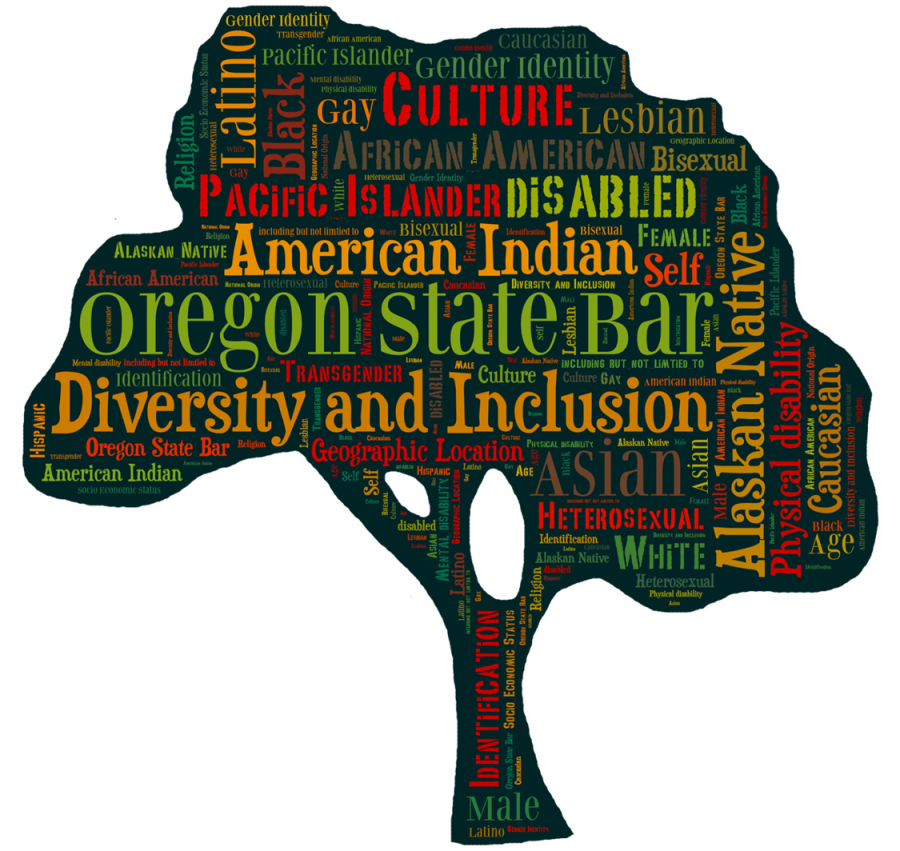2000 – 2014
BLACK: legal events in Oregon | BLUE: legal events in the Oregon State Bar | BROWN: federal events | GREEN: hyperlinks

2000 Oregonians vote to remove all racist language from its constitution that, until then, still has a clause that reads: “No free Negro, or mulatto, not residing in this state at the time of the adoption of this constitution, shall come, reside, or be within this State, or hold any real estate.” Though this and other discriminatory language have been rendered unenforceable by federal laws and amendments to the U.S. Constitution, it is not until this election that several examples of institutional racism and oppression are finally removed from the Oregon Constitution. The effort is led by State Senator Avel Gordly, the first African American elected to the Oregon Senate.
2001 The Oregon State Bar convenes a “Convocation on Equality.” Dennis Archer, the first African-American president of the American Bar Association, is the keynote speaker, urging members of the bar to further efforts toward diversity, inclusiveness, equality, and justice. The Bar’s Diversity Section is soon created and diversity becomes even more strongly part of the OSB’s mission and values statements.
2001 The Oregon Supreme Court approves a new minimum continuing legal education requirement for practicing attorneys encompassing “the role of lawyers concerning racial and ethnic issues, gender fairness, disability issues, and access to justice.”
2001 Chip Lazenby, Governor Kitzhaber’s former general counsel, is appointed the first African-American general counsel at the Portland Development Commission. 2002 Attorney (later Oregon Circuit Court Judge) Angel Lopez becomes the first person of color to serve as president of the Oregon State Bar.
2001 President George W. Bush appoints Alberto R. Gonzales the first Hispanic to serve as White House Counsel. In 2005 President Bush appoints Gonsalez as the 80th United States Attorney General. At the time of his appointment as Attorney General, Mr. Gonzales is the highest-ranking Hispanic American to serve in the Executive Branch of the federal government.

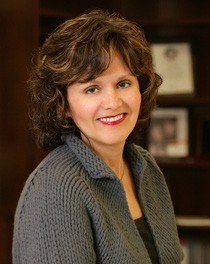
2003 Rives Kistler is the first openly LGBT person appointed to the Oregon Supreme Court and is the first openly LGBT person to sit on any state supreme court. Justice Kistler is elected to a full term in 2004 and re-elected in 2010.
2003 Darleen Ortega becomes the first Latina and the first woman of color to join the Oregon Court of Appeals.
2003 The Oregon State Bar Board of Governors adopts the Diversity bylaw as part of a comprehensive revision of the Bar’s bylaws:
The Bar respects the diversity of its membership and its employees. Bar entities, including, but not limited to standing committees, section executive committees and Continuing Legal Education programs and publications, should reflect this diversity. “Reflect,” as used in this article, does not require the application of strict quotas, but requires a good faith attempt to achieve representative participation. Reports of such efforts may be required of bar entities. In addition, no bar entity may discriminate on the basis of race, religion, color, gender, sexual orientation, geographic location, age, handicap or disability, marital, parental or military status or other classification protected by law. No professional, business or social functions of the Bar, or any of its sections, committees, affiliates or other authorized entities may be held at any private or public facility, which discriminates, based upon the terms listed above. Furthermore, advertisements or solicitations for employment must offer equal employment opportunities. The United States Armed Forces are exempt from this policy as it regards advertisements in the bar’s communications.

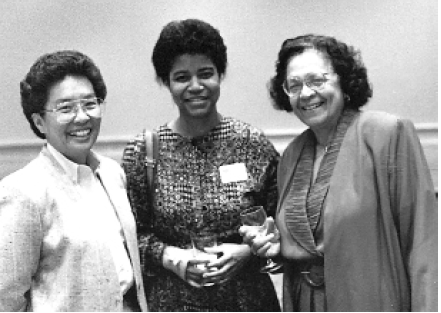
2003 Marva Fabien, a native of Trinidad and Willamette College of Law’s first coordinator of professional development and multicultural affairs, becomes the first Black attorney member of the Oregon State Bar Board of Governors. She will be followed by Kellie Johnson in 2008.
2003 In Grutter v. Bollinger, 539 US 306 (2003), the United States Supreme Court upholds the affirmative action admissions policy of the University of Michigan Law School. The court rules that the school has a compelling interest in promoting diversity in the classroom.
2003 In Lawrence v. Texas, 539 US 558 (2003), the United States Supreme Court invalidates laws criminalizing same-sex sexual activity.
2003 Dennis W. Archer becomes the first African American elected to the presidency of the American Bar Association. Two years later, in 2005, Michael S. Greco becomes the first foreign-born President of the ABA.
2004 There are 675 minority members of the Oregon State Bar, amounting to 5.37 percent of the membership.
2004 Oregon Supreme Court Justice Betty Roberts presides over the first legal same-sex marriage in Oregon, held during a brief period when Multnomah County issues marriage licenses to people of the same sex.
Later this year, by a 57 percent to 43 percent margin, Oregonians pass Ballot Measure 36, an initiative amending the Oregon Constitution to define marriage as a union of one man and one woman. In 2014 the amendment will be declared unconstitutional by U.S. District Court Judge Michael McShane, who rules that it violates the Equal Protection Clause of the Fourteenth Amendment to the United States Constitution.
2004 Understanding Racism Foundation and Oregon Uniting merge to further the work initiated by former Oregon Chief Justice Edwin Peterson in advancing racial justice and reconciliation.
2005 Oregon Hispanic Bar Association is incorporated with Román Hernández, Marisol McAllister, and Susan Felstiner as founding members. Professor Felstiner is selected chair and treasurer.
2006 Paul J. De Muniz is elected the first Hispanic Chief Justice in the history of the Oregon Supreme Court. He previously served as the first Hispanic member of the court, as he had done on the Oregon Court of Appeals.
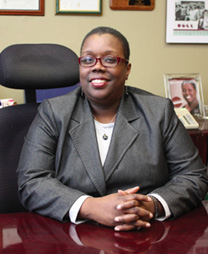
2006 Portland attorney Adrienne Nelson becomes the second Black woman appointed as a judge in Oregon when Governor Kulongoski appoints her to the Multnomah County Circuit Court.
2006 Chip Lazenby becomes the Oregon’s first Black on-campus general counsel when appointed to the position at Portland State University.
2006 The Oregon State Bar and the Oregon Judicial Department publish a Report on Access to State Courts for Persons with Disabilities. The report lists ways state courts and the Oregon State Bar can improve access, beyond minimum legal requirements, for court facilities, programs, and services, including: safety and security, jury duty, procedures, emergency evacuation plans, accommodation and grievance procedures, among other matters.
2006 The Oregon State Bar’s House of Delegates votes overwhelmingly to reauthorize the Bar’s Affirmative Action Program until 2021. The announcement is greeted with jubilation by more than 100 students, attorneys, and judges who have assembled at the House of Delegate’s annual meeting.
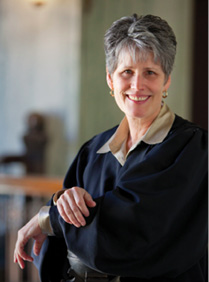
2007 Virginia Linder joins Justice Rives Kistler as the second openly LGBT member of the Oregon Supreme Court and is the first woman to become a justice by election. Justice Linder is also the first openly lesbian woman to sit on any state supreme court.
2007 John Haroldson is appointed by Governor Kulongoski as Oregon’s first Hispanic district attorney, serving Benton County. He is elected to the position in 2008.
2007 With her appointment to the Multnomah Circuit Court, Youlee Yim You becomes the first female Asian-American judge in Oregon.
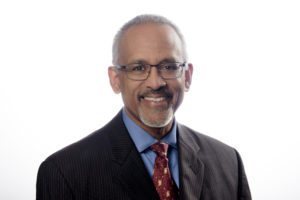
2007 Mustafa T. Kasubhai becomes the first person of color to serve on the Lane County Circuit Court, and the first Muslim-American appointed to the bench in the state of Oregon, following his appointment by Governor Kulongoski.
2007 Valeri Love is appointed by Governor Kulongoski as the first Asian Pacific American female to serve on the Lane County bench.
2007 Clara Rigmaiden is appointed by Governor Kulongoski to serve as the first Latina on the Lane County bench.
2008 John Acosta is appointed the first Hispanic Magistrate Judge for the United States District Court for the District of Oregon, the first Hispanic judicial officer appointed to Oregon’s federal bench.
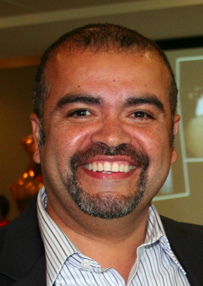
2008 On January 1, 2008, the Oregon Equality Act becomes law, banning discrimination based on both sexual orientation and gender identity or expression in employment, housing, and public accommodations. The Oregon Family Fairness Act also goes into effect in this year, allowing same-sex couples to register as domestic partners and granting them the same spousal rights of married couples.
2008 Kate Brown is elected Oregon Secretary of State, the nation’s first openly bisexual statewide officeholder.
2008 Audrey T. Matsumonji is the first Asian American appointed as a public member of the Oregon State Bar Board of Governors.
2008 Frank Garcia, Jr., is appointed director of the Oregon State Bar Affirmative Action Program.
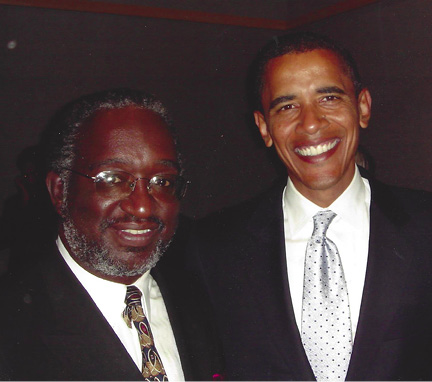
2008 Barack Obama is the first person of color elected President of the United States.
2008 Diversity is prioritized as one of the American Bar Association’s (ABA) four goals. Goal III is adopted to Eliminate Bias and Enhance Diversity, replacing Goal IX (established in 1986 to Promote Full and Equal Participation in the Profession by Minorities and Women). The objectives of Goal III are (1) to promote full participation in the association, our profession, and the justice system by all persons and (2) to eliminate bias in the legal profession and the justice system.
2009 United States District Court Judge for the District of Oregon Ann Aiken becomes the first woman to be selected Chief Judge of that court.
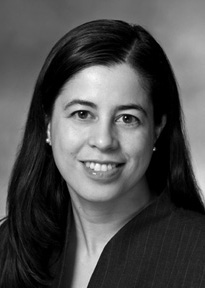
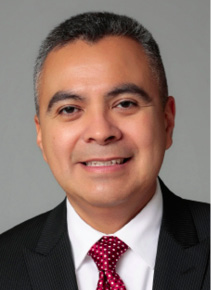
2009 The Oregon Asian Pacific American Bar Association (OAPABA) launches and elects as officers attorneys Julia Markley, David Wang, Emily Yip, and Kevin Kono.
2009 Román Hernández, one of few Hispanic partners in a major law firm (Schwabe, Williams and Wyatt), is elected president of the Hispanic National Bar Association.
2009 Eric Holder is appointed by President Barack Obama as the first African-American Attorney General of the United States.
2009 Federal Judge Sonia Sotomayor becomes the first Hispanic to join the U.S. Supreme Court, appointed by President Barack Obama.
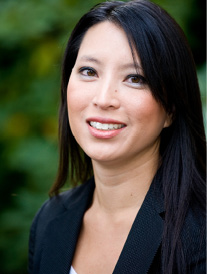
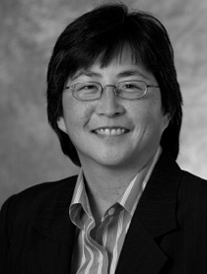
2010 Governor John Kitzhaber appoints Liani Reeves as the first Asian American to be his general counsel.
2010 American Sign Language Certified Court Interpreter Credential is implemented.
2010 Judge Lynn Nakamoto becomes the first Asian American, as well as openly LGBT woman, member of the Oregon Court of Appeals.
2010 The Oregon State Bar holds its second Convocation on Equality in its ongoing efforts to infuse diversity and inclusion through the Oregon legal profession and the larger Oregon community.
2010 The U.S. Senate votes 65 to 31 in favor of repealing “Don’t Ask, Don’t Tell,” the Clinton-era military policy forbidding openly gay men and lesbians from serving in the military. President Obama officially repeals the policy.
2010 Phyllis Randolph Frye is appointed Associate Judge for the City of Houston, Texas, Municipal Courts. Born Phillip Frye, Judge Frye becomes the nation’s first openly transgender judge upon her appointment in 2010.
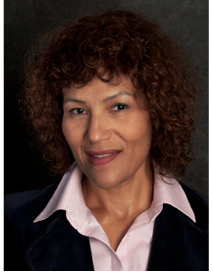

2011 Mariann Hyland is appointed Director of the Oregon State Bar Affirmative Action Program, which is renamed the Diversity & Inclusion Department.
2011 State Circuit Court Judge Marco Hernández becomes the first Hispanic district judge on the United States District Court for the District of Oregon. He is also one of the few individuals nominated to the federal bench by presidents from different parties.
2012 The Oregon State Bar creates a Diversity Advisory Council to develop a Diversity Action Plan, a three-year plan to promote a systemic, collaborative, and strategic approach to achieving goals and objectives to enhance the Board of Governor’s interest in advancing diversity and inclusion.
2012 The Oregon State Bar’s Affirmative Action Committee is renamed the Advisory Committee on Diversity and Inclusion in recognition of its broader focus of supporting the mission of the Oregon State Bar by promoting respect for the rule of law, improving the quality of legal services, and increasing access to justice. The renamed Diversity and Inclusion Department, directed by Mariann Hyland, works to increase the diversity of the Oregon bench and bar by administering programs that reflect the diversity of the people of Oregon, educating attorneys about the cultural richness and diversity of the clients they serve, and removing barriers to justice.
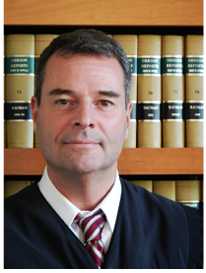
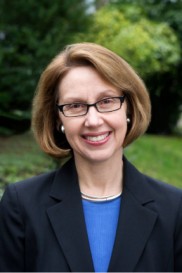
2012 Following a distinguished career as an attorney, state judge, and board member of both the Oregon and American bar associations, Ellen F. Rosenblum becomes Oregon’s first female attorney general.
2013 The Oregon State Bar’s House of Delegates passes a resolution increasing the annual diversity and inclusion assessment for the first time in 23 years.
2013 In calculating diversity by longevity-of-membership, the Oregon State Bar counts more than a dozen members who passed the bar exam in or prior to 1950, providing Oregonians with legal experience spanning 70 years of practice.
2013 Michael McShane becomes the first openly LGBT judge on the United States District Court for the District of Oregon.
2013 Patrick Dennis, a student at Lewis & Clark Law School suffering from severe rheumatoid arthritis, is elected president of the National Association of Law Students with Disabilities. “[Law] schools can’t take a one-size-fits-all approach,” he explains. “The difficulty with disabilities is that it’s not easy just to pin it down. Everybody’s disabilities impact them in very individual ways.”
2013 Simon Whang is the first Asian American elected to the Oregon State Bar Board of Governors.
2013 Oregon Judicial Department employee and OSB member Alec L. Esquivel settles Esquivel v. State of Oregon when the State agrees to remove all language in employee health-care insurance policies that deny coverage to transgender individuals for transition-related health care.
2014 United States Senate confirms Diane Humetewa as the first Native American woman as a judge of a United States district court (Arizona).
2014 U.S. District Court Judge Michael McShane overturns Oregon’s same-sex marriage ban, ordering the State of Oregon not to enforce its ban and stating that it unconstitutionally discriminates against same-sex couples. State officials earlier refused to defend the constitutional ban in court. In his opinion, Judge McShane writes: “I believe that if we can look for a moment past gender and sexuality, we can see in these plaintiffs nothing more or less than our own families. Families who we would expect our Constitution to protect, if not exalt, in equal measure. With discernment we see not shadows lurking in closets or the stereotypes of what was once believed; rather, we see families committed to the common purpose of love, devotion, and service to the greater community.”
2014 The Oregon State Bar’s President’s Affirmative Action Award is renamed the President’s Diversity and Inclusion Award.
2014 There are 1,023 minority members of the Oregon State Bar, amounting to 6.86 percent of the membership.

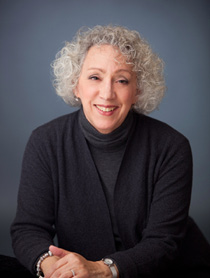
2014 Under the leadership of President Mike Haglund and Executive Director Sylvia Stevens, the Oregon State Bar Board of Governors adopts its 2014-2016 Diversity Action Plan. The Plan enumerates eight goals for strengthening the Bar’s diversity standards:
- Increase the diversity of the Oregon Bar and Bench.
- Increase engagement by bar leadership for community outreach.
- Increase the diversity of the pool of volunteer bar and community members engaged in OSB activities and leadership.
- Increase bar staff diversity and education, and foster a welcoming and inclusive culture.
- Increase the diversity of OSB contractors, suppliers, vendors, and renters.
- Foster knowledge, education, and advancement of legislation that increases access to justice.
- Expand public and bar member education, outreach, and service.
- Increase representation of low income Oregonians and enhance accountability for services to diverse clients.
“With this action plan,” writes Oregon State Bar 2013 President-Elect Tom Kranovich, “the OSB takes its commitment to diversity front and center, and also weaves it throughout the various programs and services of the bar. It is evidence of our growth as an organization. Where we once had a stand-alone Affirmative Action Program we now have a comprehensive plan to make Diversity & Inclusion a part of every program and service we provide.”
